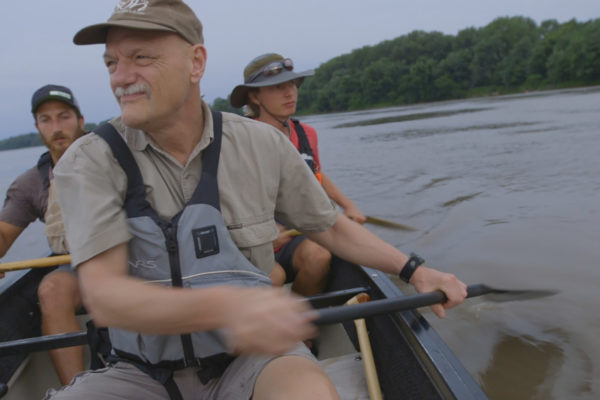Washington People: Bob Criss
During an 8-mile journey from the Columbia Bottom conservation area over the Chain of Rocks in a canoe, Bob Criss in Arts & Sciences talks about Lewis and Clark, navigation and the relevance of rivers today.
Strategy proposed for preventing diseases of aging
More efforts should be directed at promoting interventions that have the potential to prevent multiple chronic diseases and extend healthy lifespans. School of Medicine and other researchers write in Nature that economic incentives in biomedical research and health care reward treating disease more than promoting good health.
Biologist discusses sacred nature of sustainability
GoodenoughThe hot topics of global warming and environmental sustainability are concerns that fit neatly within the precepts of religious naturalism, according to Ursula Goodenough, Ph.D., professor of biology in Arts & Sciences at Washington University in St. Louis. In addition to being a renowned cell biologist, Goodenough is a religious naturalist and the author of The Sacred Depths of Nature, a bestselling book on religious naturalism that was published in 1998. Religious naturalism neither requires belief in God nor excludes such faith. Rather, the movement is based on what Goodenough describes as “an exploration of the religious potential of nature.”
Social problems such as obesity can’t be solved through genetics alone, warns biologist
Photo courtesy University of IowaCould there be a link between the obesity epidemic and eugenic thinking? A historian of science at Washington University in St. Louis poses the question.As obesity rates continue to grow in the United States, threatening the health of millions of Americans, a historian of science warns that social problems such as this cannot be solved through science, especially genetics, alone. In this new “gene age” in which large amounts of research funds are used for studies on the genetics of such complex social traits as alcoholism, criminality or obesity, for example, Garland E. Allen, Ph.D., professor of biology in Arts & Sciences at Washington University in St. Louis, says the climate is ripe for a “re-packaged” eugenics in American society. Allen points out that 100 years ago, eugenics, a movement that claimed many social, personality and mental traits were hereditary, was emerging as a major social movement in Europe and the United States. His concern: it might well still be with us today.

